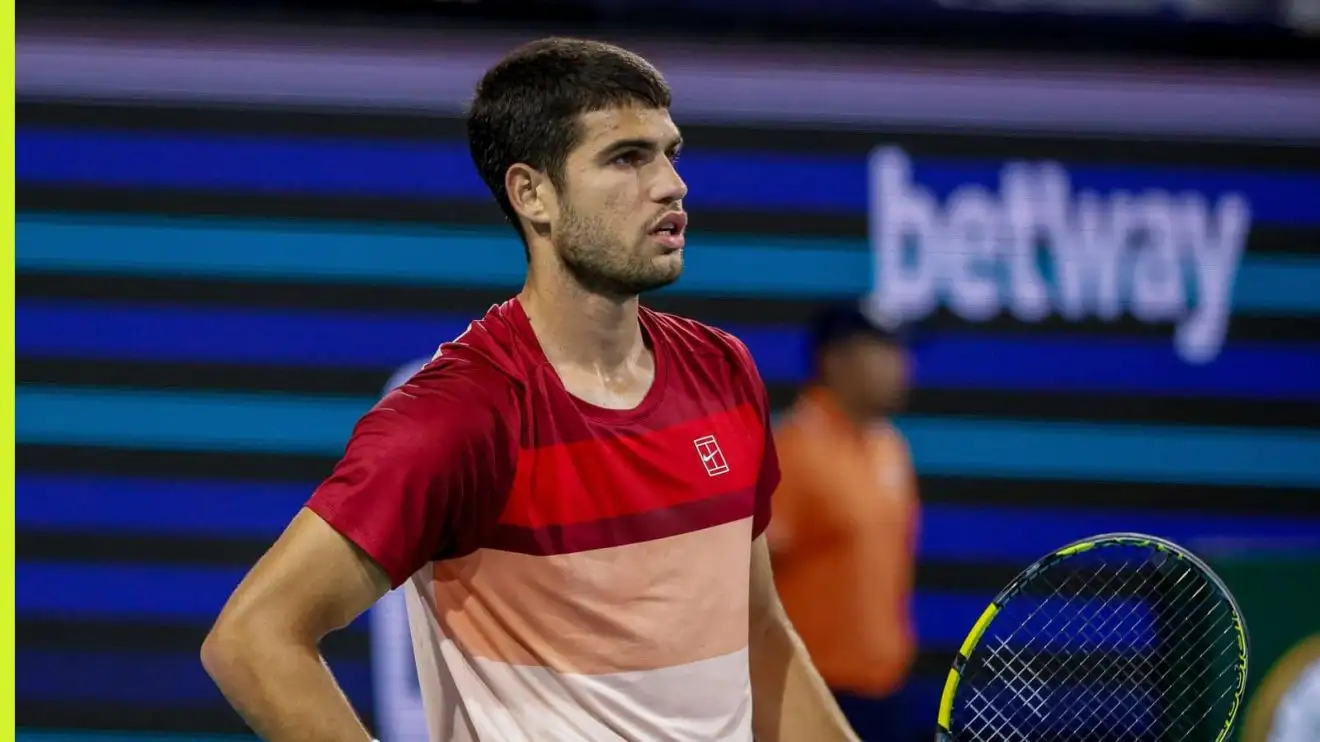
The sun dipped low over the Mediterranean, casting a golden glow across the clay courts of the Monte Carlo Country Club, where Carlos Alcaraz stood triumphant on April 13, 2025. The 21-year-old Spaniard had just clinched his first Monte Carlo Masters title, a commanding 3-6, 6-1, 6-0 victory over Lorenzo Musetti, marking his sixth ATP Masters 1000 crown and a return to world No. 2. Yet, as the crowd’s cheers echoed and he hoisted the trophy, Alcaraz’s post-match reflections revealed a shadow beneath the triumph—a “tough month” that had tested him both on and off the court. “It’s been a really difficult week with a lot of difficult situations,” he said, his voice carrying a weight that hinted at struggles he chose not to name.
The final itself was a tale of resilience. Musetti, a 23-year-old Italian in his first Masters 1000 final, came out swinging, his one-handed backhand slicing through the chilly Monaco air. He broke Alcaraz early, capitalizing on the Spaniard’s 14 unforced errors—11 from his usually devastating forehand—to claim the first set 6-3. The upset seemed within reach. But Alcaraz, the reigning French Open and Wimbledon champion, is no stranger to turning tides. In the second set, he adjusted, stepping closer to the baseline and landing 78% of his first serves. His aggression overwhelmed Musetti, who faltered with nine errors, allowing Alcaraz to storm back 6-1. “I just wanted to stay strong and wait for my chances,” Alcaraz said, a mantra that defined his comeback.
The third set, however, was less a contest than a formality. Musetti, who had endured over four hours more court time than Alcaraz during the tournament, began to unravel physically. A muscular issue in his right thigh forced a medical timeout at 0-3, and his movement faded. Alcaraz, clinical yet empathetic, sealed a 6-0 rout in just 1 hour and 54 minutes. “This is not the way I would have wanted to win a match,” he admitted, his sportsmanship shining as he consoled his rival. “Lorenzo has had a tough week, really long and intense matches, so I just feel sorry for him.” Musetti, despite the loss, rose to a career-high No. 11, his run—including upsets over Stefanos Tsitsipas and Alex de Minaur—cementing his clay-court pedigree.
Alcaraz’s victory was a milestone, his 18th ATP title and a boost as he prepares to defend his French Open crown. Yet, his cryptic comments about a challenging month stole the spotlight. “It’s been a tough month for me. On and off the court. I don’t want to say in public, but I was struggling stepping on the court,” he revealed, brushing off further questions with a smile. The remarks sparked curiosity, coming after a mixed hard-court swing—a semifinal loss to Jack Draper in Indian Wells and a shocking second-round exit to David Goffin in Miami. “I’m proud with how I dealt with everything,” he added, suggesting a mental battle fought and won in Monaco’s slow, heavy conditions.
His path to the final was no stroll. Alcaraz overcame Francisco Cerundolo, Daniel Altmaier, a thrilling three-setter against Arthur Fils—where he saved three break points at 5-5 in the second set—and a gritty Alejandro Davidovich Fokina in the semifinals. “I have to think about myself, my team, my family, my friends,” he said, dismissing external expectations as “freak talk.” This focus fueled his clay-court mastery, where he boasts a 16-1 record since last year’s French Open, his only loss to Novak Djokovic in the Olympic final.
For Alcaraz, Monte Carlo was a fresh start after missing the event the past two years due to injuries. “I have missed clay,” he grinned, relishing the drop shots and sliding rallies that define his game. The win positions him as a favorite for Barcelona and Madrid, where he’s a two-time champion, though he tempered expectations: “I’m pretty sure it’s going to be difficult months ahead because a lot of people have high expectations of me.” As he looks to Roland Garros, Alcaraz’s blend of humility and hunger—coupled with a resolve forged through unspoken trials—signals a champion ready to conquer whatever lies ahead.
Leave a Reply